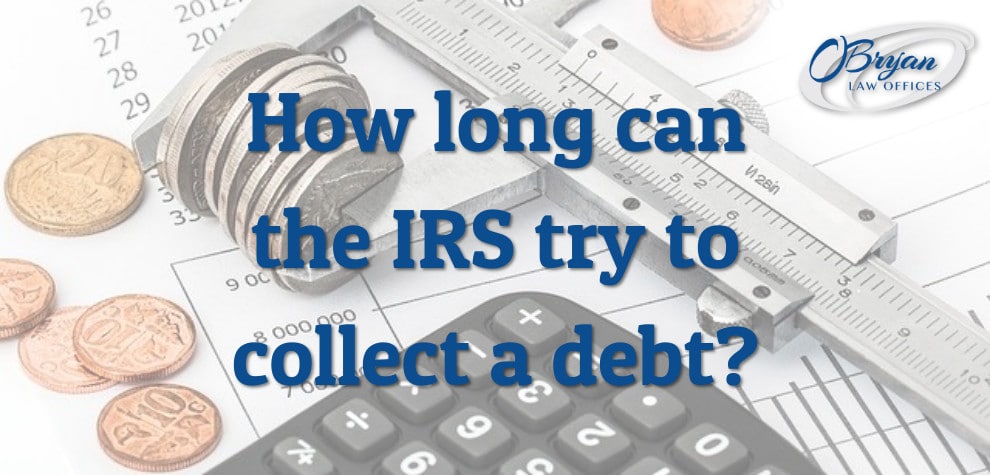If you owe money to the IRS, you might assume that they have an unlimited amount of time to try collecting from you. Fortunately, that is not the case. There is a 10 year IRS debt Collection Statute Expiration Date (CSED) that the IRS must abide by. This means that they have 10 years to collect any unpaid taxes from you starting from their assessment date.
If your CSED is fast approaching, the IRS may pressure you to pay up. If you’re unsure of how to handle this situation, we encourage you to speak with our experienced Louisville bankruptcy professionals right away. Over 30 years of practice in this field has given our law office the right tools to handle your case with the IRS the best way possible.
Statute of Limitations on IRS Debt Collection
In general, the IRS may try to collect debt from you for up to 10 years from the assessment date. With very few exceptions, the IRS must stop any and all collection efforts once that 10 year mark comes around. If your CSED is coming up, the IRS will likely increase their efforts to collect payments from you.
As an example, let’s say that you did not pay in full when filing your tax return. The IRS sends you a notice of what you owe. Whatever date is on that bill begins your 10 year period. Similarly, let’s say that you didn’t file a tax return. The IRS will create a substitute return for you, and make an assessment. The date on this assessment starts your 10 year period.
Can the IRS Collect Debt After 10 Years?
The 10 year period of IRS debt collection we mentioned above has some very important exceptions. Whether your limitations period is suspended or if you voluntarily extend your limitations period, it is possible for your CSED to be more than 10 years away. This means that the IRS will have a longer period of time to attempt collection.
Suspensions:
One possibility behind your IRS debt collection period outlasting 10 years is a suspension. During suspension periods, the IRS legally cannot take collection action against you. Therefore, these suspension periods do not count toward your 10 year statute of limitations.
For example, maybe you file for bankruptcy in Louisville. The court may issue a stay, which prevents the IRS from attempting to collect from you. The suspension period in this case may last for the entirety of the bankruptcy, plus an additional 6 months.
Your 10 year period may also be suspended if the IRS considers your request for a compromise, an installment plan, innocent spouse relief, or if you live outside the U.S. for at least 6 months. Rarely, your 10 year period might encounter suspension if the IRS attempts to sue you.
Extensions:
Sometimes, the IRS may try to convince you to extend your limitations period. In the past, the IRS might have threatened an individual into an extension. Luckily, this practice has been illegal since 1998. They can, however, find other ways to make this happen.
For example, if a taxpayer agrees to an installment plan, the IRS might require a waiver of the 10 year limitations period. This extension does not exceed 6 years, but that is still 6 more years of collection opportunities than the IRS had originally.
As your CSED approaches, the IRS is more likely to offer initially appealing installment plans to taxpayers, especially if they still owe a significant amount. To avoid pressure from the IRS, always speak with an experienced tax attorney before making a decision.
For More Questions, Contact O’Bryan Law Offices Today
If you feel overwhelmed by your debts to the IRS, our Kentucky debt counseling lawyers are here to help. At O’Bryan Law Offices, our goal is to provide you with compassionate client service. Our experienced tax attorneys have all the understanding you need to get back on your feet.
In addition to helping you navigate your debt to the IRS, we have a wide variety of other practice areas, such as mortgages, foreclosure, and even small business restructuring. If you’re in need of legal financial advice, contact O’Bryan Law Offices today. Fill out our online intake form or give us a call at 502-339-0222 for a free consultation.








